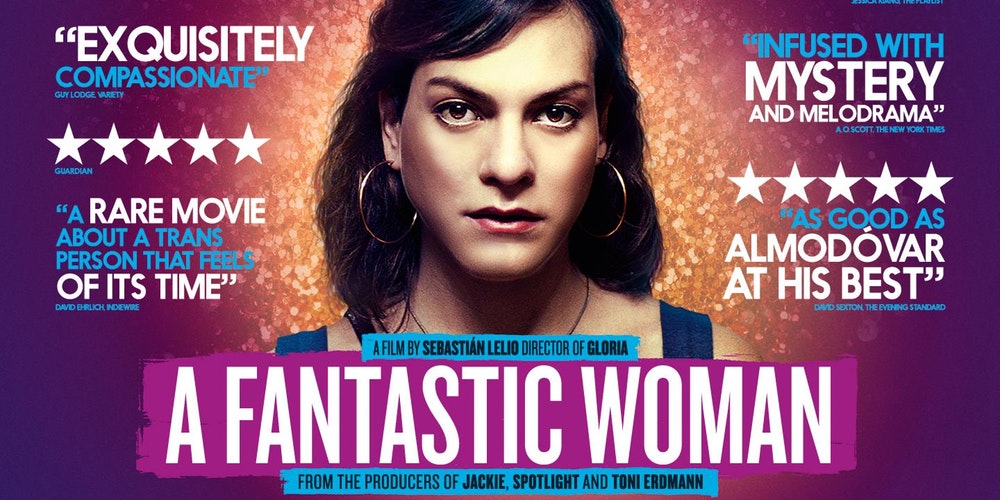By Maria Gkika,
Obviously inspired by Pedro Almodóvar’s works, Sebastián Lelio turns a serious social problem, the recognition of the transgender as an entity, into pure cinema. Rather than rely on annoying clichés about transgender people or long sermons about their right to be recognized and treated equally in our society, the movie uses this meaningful subject to tell a beautiful story. As only art can do, A Fantastic Woman (Una Mujer Fantástica in Spanish) subtly conveys a strong message in a moving tale without sacrificing entertainment.
Marina Vidal (Daniela Vega), a transgender server and singer finds her life in turmoil after the sudden death of her older by 20 years boyfriend, Orlando (Francisco Reyes). His family revolts against her and they want to throw her out of the flat in which they lived and keep the pair’s dog. Though at first, she tries to respect their wishes and be cooperative, their demands and behavior are getting increasingly disrespectful. In addition, the wounds on Fernando’s head put her in a precarious position with the police. Unable to find support from anyone and struggling with the huge loss of her beloved, she has to call upon her inner strength, maturity, and self-love to face the bigotry and the cruelty of her self-imposed judges and fight for what she deserves.

It is impressive how the film completely absorbs the audience into the story. The plot has many elements of mystery that could easily lead to a story about a crime if the creators chose to do so. Another thing I enjoyed was the long sequences of Marina walking around. Watching those scenes, we can imagine her pain as well as see her dignity in a striking manner, while admiring the impeccable cinematography. Also, I found the inclusion of lyrical singing in the narrative to be very inspiring and Vega’s vocal abilities were perfectly displayed. This emotional and melancholic genre of music of immense symbolic character perfectly added to the ambiance of the story and enhanced the impact of the scenes it was accompanying. In general, I liked that the drama was not forced. The editing gives a beautiful flow to the story and does not tire out the audience.
A special mention needs to be given to Daniela Vega. Her selection as the protagonist is what makes the film stand out. It is not just that she is an excellent actress, but also that she is transgender. Her presence gives another level of substance to the heroine of the script making the film much more authentic.
To sum up, it is no wonder that the film won the Oscar for Best Foreign Language Film at the 90th Academy Awards. It also became the first Chilean film to win an award in this category. A superb screenplay is complemented by excellent direction, and Vega’s authentic performance and the atmospheric cinematography combine to give this film an incredible impact. Nevertheless, its most significant achievement is the way in which a powerful social commentary is discretely made through an emotionally involving human drama. Although I personally would have liked to see more build-up towards the end, I can definitely say that the film hits the mark and leaves no viewer unmoved.
References




